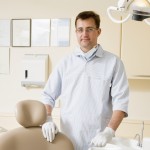
The opportunity costs to health care providers of failed appointment are considerable. The aim of this trial was to assess whether the use of text messaging would reduce missed appointments at a university paediatric dental clinic.
318 pairs (caregiver/child dyads) were randomly assigned (59 percent response) to receive a short message service (SMS) text message (n = 158) or a voice message (control group) (n = 160) as an appointment reminder.
They found:-
- Younger caregivers were more likely to be nonattendees than were older caregivers (P = .02).
- The voice message group had a lower no-show attendance (8.2 percent) than did those in the text message group (17.7 percent) (P = .01).
- The unadjusted odds ratio (OR) for type of appointment reminder and no-show attendance was 2.41 (P = .01). After the authors adjusted for the caregiver’s age, the OR was 2.12 (P = .04).
The authors concluded that:-
SMS text messages were not as effective as voice reminders for patients in a dental school pediatric dentistry clinic. Future studies should investigate the effect of text message reminders when limited to patients who self-select that type of reminder and in patient populations outside the university setting.
Nelson TM, Berg JH, Bell JF, Leggott PJ, Seminario AL. Assessing the effectiveness of text messages as appointment reminders in a pediatric dental setting. J Am Dent Assoc. 2011 Apr;142(4):397-405. PubMed PMID: 21454845.
Comment
A systematic review (Hasvold 2011) comparing telephone versus SMS reminders that included 29 studies but not this one concluded:-
The evidence is overwhelming that reminders have a positive effect on non-attendance rates. Our study shows that a 39% improvement in the baseline DNA rate can be expected when manual reminders are employed, and a 29% improvement when automated reminders are used.
Hasvold PE, Wootton R. Use of telephone and SMS reminders to improve attendance at hospital appointments: a systematic review. J Telemed Telecare. 2011;17(7):358-64. Epub 2011 Sep 20. PubMed PMID: 21933898; PubMed Central PMCID: PMC3188816.
